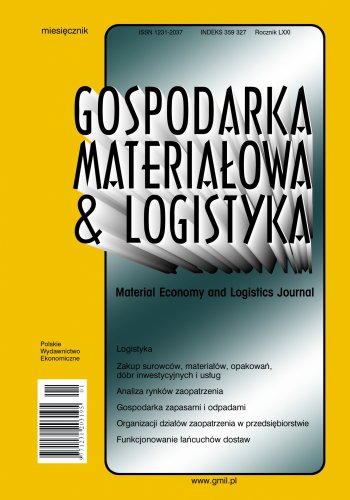Supply chains are complex structures full of paradoxes that can be understood in different ways.
Thus, many concepts related to supply chain formation and operation originate from specific
metaphors. Some of them lead to well-known ways of thinking, whereas others contribute to the
development of new ideas and interpretations of supply chain. Certain metaphors may refer to an
entire organization, while others may emphasize one of its components, or concern a specific
operational aspect. Metaphors may also be a useful instrument for learning about complex and
multi-dimensional problems of resilient supply chain, i.e. supply chain that maintains operational
continuity thanks to its ability to handle uncertainty, and thus is characterised by the capability of
achieving a new status in consequence of disruptions.
The paper attempts to identify the operational mechanism of resilient supply chain, using the multi-
metaphor approach. For this purpose, metaphors characteristic for the neopositivist paradigm were
applied. Following the summary, the paper depicts the interpretative fields of resilient supply chains,
the role of metaphors in explaining the organizational reality, and then explains particular elements
of reality of a resilient supply chain through the metaphor of organization as an organism, flux and
transformation, dissipative structure and brain.
Keywords: resilience; supply chain; organizational metaphor; paradigm

